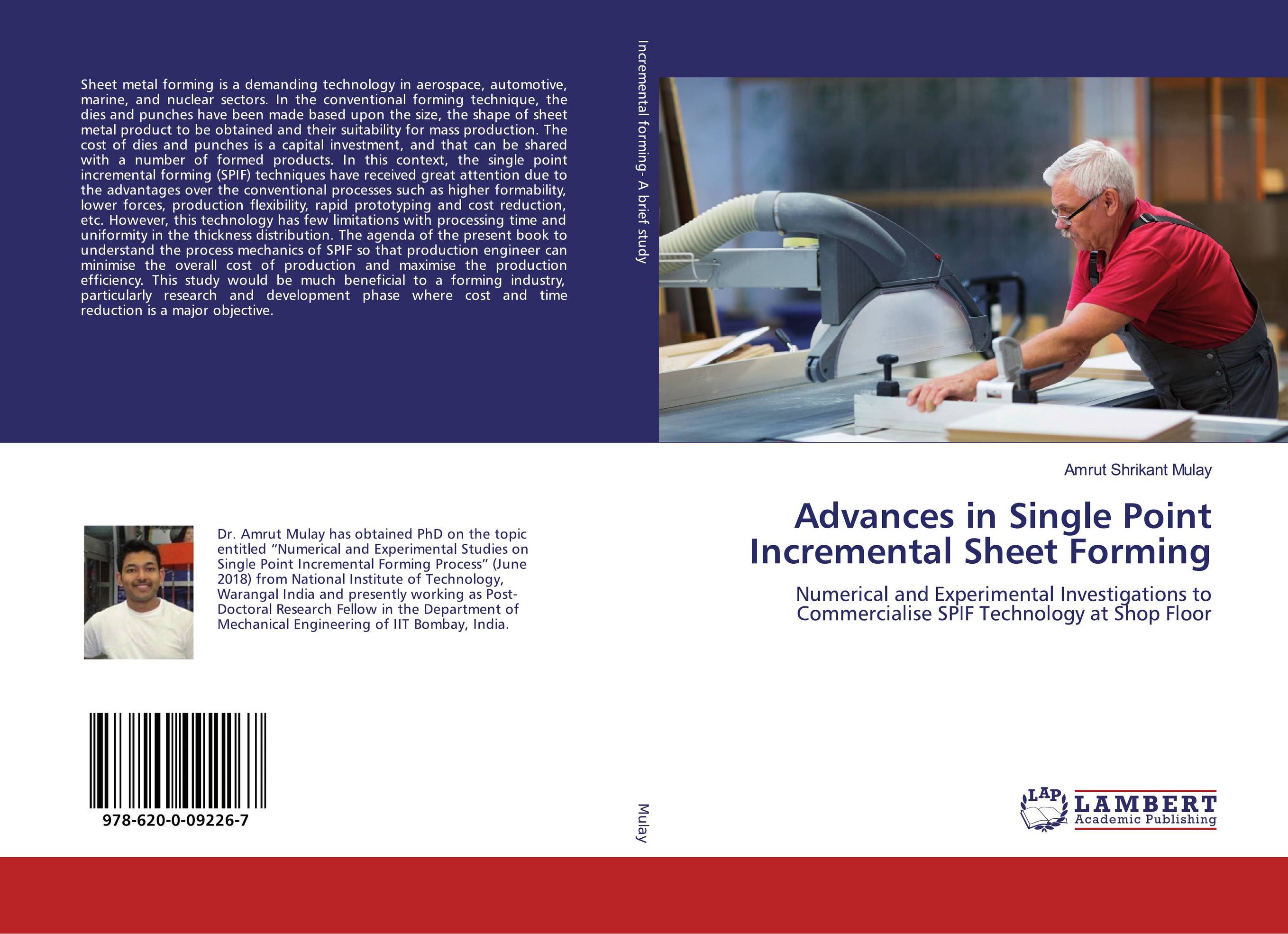| Поиск по каталогу |
|
(строгое соответствие)
|
- Профессиональная
- Научно-популярная
- Художественная
- Публицистика
- Детская
- Искусство
- Хобби, семья, дом
- Спорт
- Путеводители
- Блокноты, тетради, открытки
Advances in Single Point Incremental Sheet Forming. Numerical and Experimental Investigations to Commercialise SPIF Technology at Shop Floor

В наличии
| Местонахождение: Алматы | Состояние экземпляра: новый |

Бумажная
версия
версия
Автор: Amrut Shrikant Mulay
ISBN: 9786200092267
Год издания: 2019
Формат книги: 60×90/16 (145×215 мм)
Количество страниц: 120
Издательство: LAP LAMBERT Academic Publishing
Цена: 32599 тг
Положить в корзину
| Способы доставки в город Алматы * комплектация (срок до отгрузки) не более 2 рабочих дней |
| Самовывоз из города Алматы (пункты самовывоза партнёра CDEK) |
| Курьерская доставка CDEK из города Москва |
| Доставка Почтой России из города Москва |
Аннотация: Sheet metal forming is a demanding technology in aerospace, automotive, marine, and nuclear sectors. In the conventional forming technique, the dies and punches have been made based upon the size, the shape of sheet metal product to be obtained and their suitability for mass production. The cost of dies and punches is a capital investment, and that can be shared with a number of formed products. In this context, the single point incremental forming (SPIF) techniques have received great attention due to the advantages over the conventional processes such as higher formability, lower forces, production flexibility, rapid prototyping and cost reduction, etc. However, this technology has few limitations with processing time and uniformity in the thickness distribution. The agenda of the present book to understand the process mechanics of SPIF so that production engineer can minimise the overall cost of production and maximise the production efficiency. This study would be much beneficial to a forming industry, particularly research and development phase where cost and time reduction is a major objective.
Ключевые слова: SPIF, Incremental forming, Rapid Prototyping, Formability, CNC



